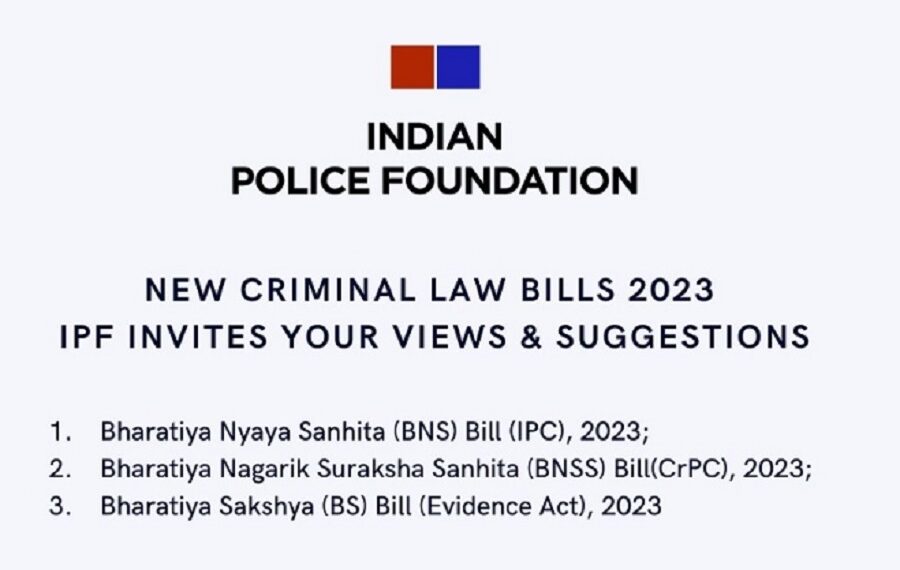NEW DELHI: The Indian Police Foundation (IPF), a multi-disciplinary think tank, on August 16, has extended an invitation to individuals across various fields to provide valuable insights, perspectives, and recommendations concerning the trio of new bills introduced by the Centre in the Lok Sabha.
The invitation has been extended to police officers of diverse ranks, legal professionals, prosecutors, scholars, universities, law schools, and civil society organizations. These bills, aimed at revamping the India’s criminal justice system, were unveiled on August 11 in the Lok Sabha.
The IPF, in a official statement released recently, has taken proactive measures by instituting three distinct working groups that will rigorously scrutinise the three meticulously drafted bills, delving into their intricacies.
“The new laws will have far reaching applications on our daily lives, police and policing. The IPF’s objective is to build a clear set of recommendations to the Parliamentary Committee, based on our learning from the intensive reviews and iterations of the new framework,” the statement read. The IPF have urged everyone to send their recommendations to discussions@policefoundation.in.
Earlier on August 11, Home Minister Amit Shah had introduced three new bills in the Lok Sabha to extensively reform India’s criminal justice system, which was initially established by the British in 1860.
The trio of bills – the Bharatiya Nyaya Sanhita Bill, 2023, the Bharatiya Sakshya Bill, 2023, and the Bharatiya Nagrik Suraksha Sanhita Bill, 2023 – is slated to supersede the existing Indian Penal Code, 1860; the Indian Evidence Act, 1972; and the Code of Criminal Procedure, 1973.
“The laws that are being replaced were essentially aimed at safeguarding the continuation of the British administration and their objective was to punish, not deliver justice,” Shah had said.
The proposed legislation has been formally referred to the Parliamentary Standing Committee for further thorough review, and the comprehensive report is anticipated to be presented during the upcoming parliamentary session.















